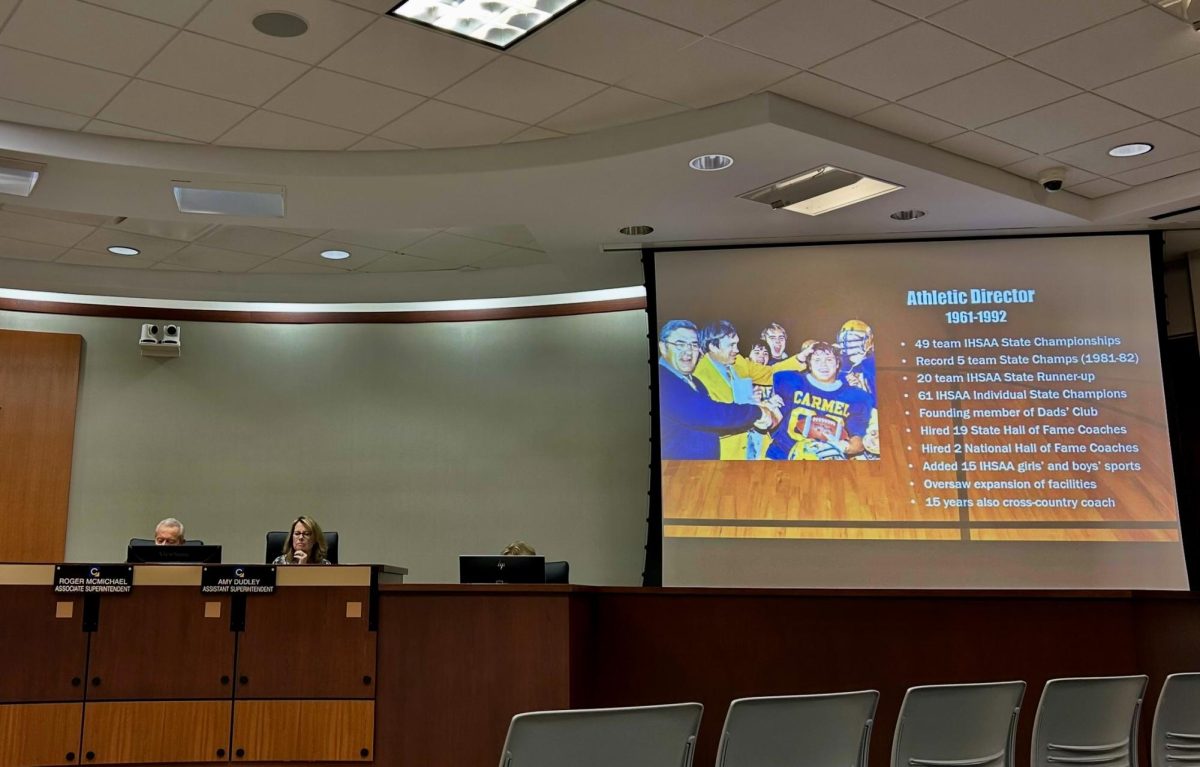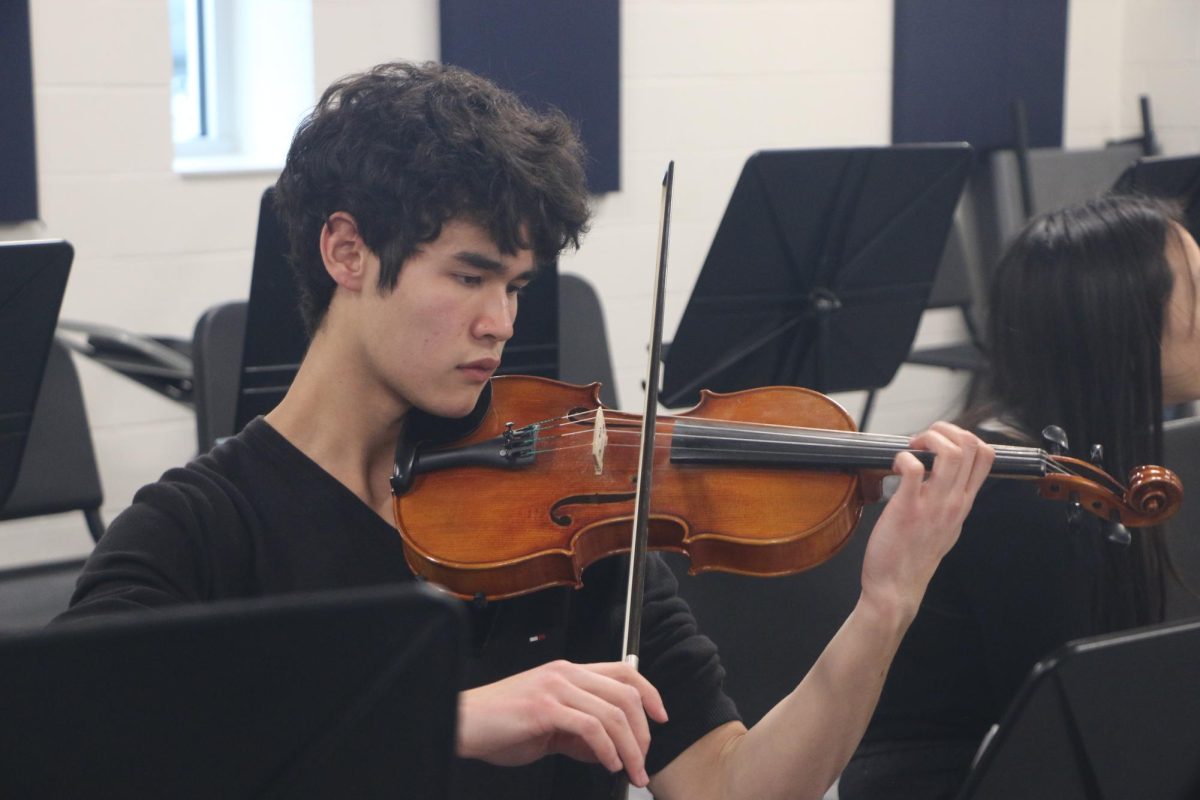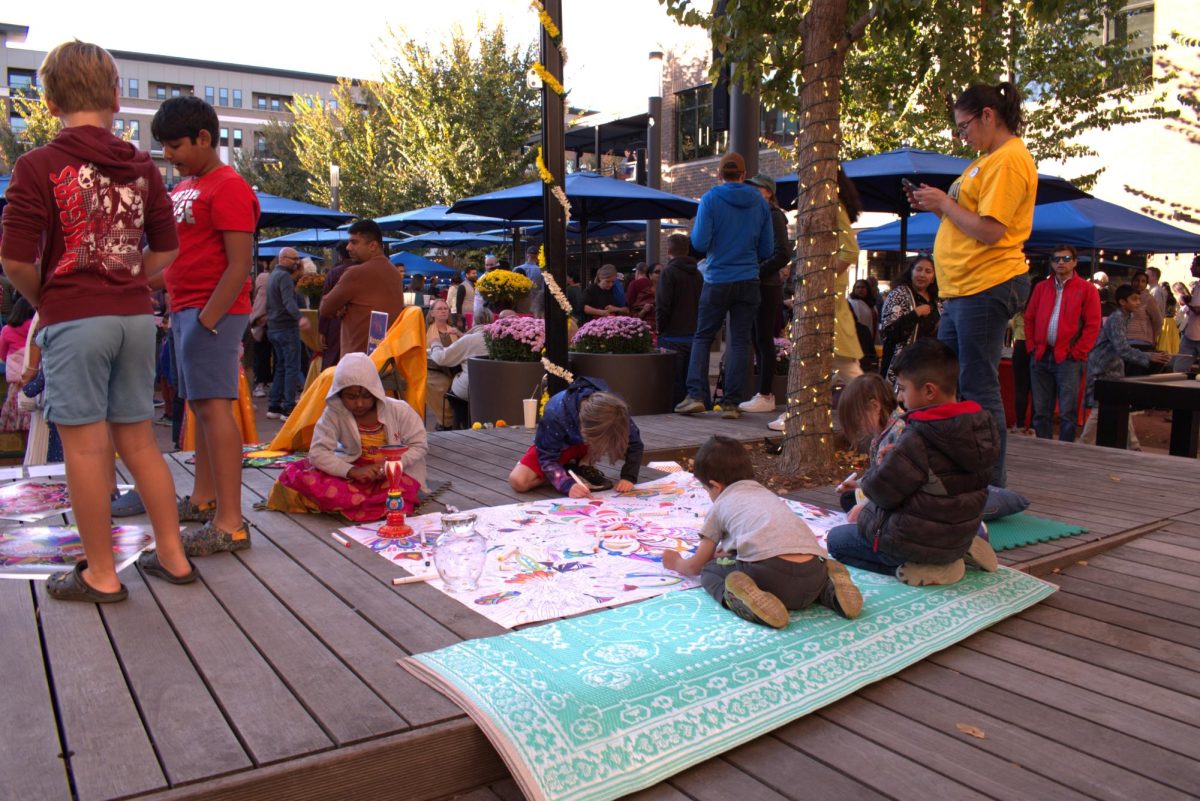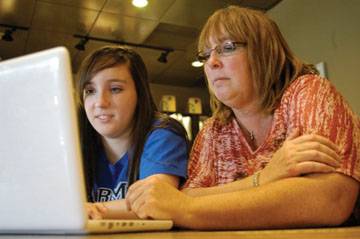For years, social networking sites like Facebook have been places for teens and young adults to share photos, update statuses and connect with peers. However, according to a study done by Pew Research, 2011 marks the first time that 50 percent of all adults reported using social networks.
For students, this means parents on Facebook, MySpace and LinkedIn. Students now have another option for connecting with mom and dad, bringing about a whole new level of parent-child communication. Students at this school, however, said their choices to be or not be friends with their parents online were close reflections of their relationships with them in real life.

Junior Dana James said she chose to be Facebook friends with her mom, Jeanette, because of her real life closeness to her mom.
“My mom and I are really close,” Dana said. “We pretty much do everything together. I mean I’m with her all the time so it doesn’t really make any difference that I’m friends with her on Facebook, too.”
Counselor Melinda Stephan said she agreed that parent-child relationships on social networking sites can add to real life relationships.
“For some families, (online relationships) could certainly detract from (a real relationship) but I don’t think that it replaces it, I think it probably enhances it,” Stephan said.
Mrs. James agreed that her close relationship with her daughter made being friends online simple.
“I don’t know how much closer we could be,” Mrs. James said. “I’m not real good with technology, so she helps me out. A lot of times she’ll be on one computer, and I’ll be on another, and we’ll chat with each other. I enjoy seeing what’s going on with her and her friends.”
Unlike the James family, junior Mollie Fehribach and her mom Teresa Fehribach are not friends on social networks like Facebook. Mollie said that she had enough contact with her mom in real life and would like more privacy and personal space on her online profile.
According to Mollie, “Being a teenager, (my parents say), “Oh my gosh, this is part of their life that they’re most vulnerable, let me help.’ They need to give a little space… and online is the way to do it.”
Mrs. Fehribach said she understood why Mollie did not want to be friends on Facebook.
“I can understand that because I know that parents, that way, can keep tabs of everything that their kids are doing,”
Mrs. Fehribach said, “(Mollie) might feel like that would be an intrusion and invading her privacy a little bit.”
Mollie said that while she and her mom don’t have any out-the-ordinary conflicts, they aren’t particularly close either. Stephan said that in these types of relationships, connections over Facebook may actually help.

“Especially with teenagers, it’s already difficult to keep that relationship going because they’re very independent, they’re busy sometimes,” Stephan said. “It’s very typical for teenagers to have better relationships with their peers than their parents, so I think (being online friends with parents) in some ways helps in that area because if they can’t always do the face-to-face because they either don’t see eye to eye on things or they’re never at home at the same time, at least they have that link.”
While families at this school see parent-child relationships over social networks in different ways, Stephan said that in either perspective, the key is to find an appropriate balance between communication and privacy.
“I get that (need for space) and that’s why I think that’s a hard balance to strike. There’s a part of me that says that as a parent I want to give my child some independence there to use those tools in a way that keeps them connected to peers,” Stephan said. “But I think given that there’s so much going on in today’s students lives, and things change and plans change, it’s really nice that a parent can (use Facebook to) get a message to a child.”




























![Keep the New Gloves: Fighter Safety Is Non-Negotiable [opinion]](https://hilite.org/wp-content/uploads/2024/12/ufcglovescolumncover-1200x471.png)






!["Wicked" poster controversy sparks a debate about the importance of accuracy versus artistic freedom [opinion]](https://hilite.org/wp-content/uploads/2024/11/riva-perspective-cover-1200x471.jpg)









































![Review: “We Live in Time” leaves you wanting more [MUSE]](https://hilite.org/wp-content/uploads/2024/12/IMG_6358.jpg)
![Review: The premise of "Culinary Class Wars" is refreshingly unique and deserving of more attention [MUSE]](https://hilite.org/wp-content/uploads/2024/12/MUSE-class-wars-cover-2.png)
![Introducing: "The Muses Who Stole Christmas," a collection of reviews for you to follow through winter [MUSE]](https://hilite.org/wp-content/uploads/2024/12/winter-muse-4.gif)
![Review: "Meet Me Next Christmas" is a cheesy and predictable watch, but it was worth every minute [MUSE]](https://hilite.org/wp-content/uploads/2024/11/AAAAQVfRG2gwEuLhXTGm3856HuX2MTNs31Ok7fGgIVCoZbyeugVs1F4DZs-DgP0XadTDrnXHlbQo4DerjRXand9H1JKPM06cENmLl2RsINud2DMqIHzpXFS2n4zOkL3dr5m5i0nIVb3Cu3ataT_W2zGeDAJNd_E-1200x884.jpg)
![Review: "Gilmore Girls", the perfect fall show [MUSE]](https://hilite.org/wp-content/uploads/2024/11/gilmore-girls.png)
![Review in Print: Maripaz Villar brings a delightfully unique style to the world of WEBTOON [MUSE]](https://hilite.org/wp-content/uploads/2023/12/maripazcover-1200x960.jpg)
![Review: “The Sword of Kaigen” is a masterpiece [MUSE]](https://hilite.org/wp-content/uploads/2023/11/Screenshot-2023-11-26-201051.png)
![Review: Gateron Oil Kings, great linear switches, okay price [MUSE]](https://hilite.org/wp-content/uploads/2023/11/Screenshot-2023-11-26-200553.png)
![Review: “A Haunting in Venice” is a significant improvement from other Agatha Christie adaptations [MUSE]](https://hilite.org/wp-content/uploads/2023/11/e7ee2938a6d422669771bce6d8088521.jpg)
![Review: A Thanksgiving story from elementary school, still just as interesting [MUSE]](https://hilite.org/wp-content/uploads/2023/11/Screenshot-2023-11-26-195514-987x1200.png)
![Review: "When I Fly Towards You", cute, uplifting youth drama [MUSE]](https://hilite.org/wp-content/uploads/2023/09/When-I-Fly-Towards-You-Chinese-drama.png)
![Postcards from Muse: Hawaii Travel Diary [MUSE]](https://hilite.org/wp-content/uploads/2023/09/My-project-1-1200x1200.jpg)
![Review: "Ladybug & Cat Noir: The Movie," departure from original show [MUSE]](https://hilite.org/wp-content/uploads/2023/09/Ladybug__Cat_Noir_-_The_Movie_poster.jpg)
![Review in Print: "Hidden Love" is the cute, uplifting drama everyone needs [MUSE]](https://hilite.org/wp-content/uploads/2023/09/hiddenlovecover-e1693597208225-1030x1200.png)
![Review in Print: "Heartstopper" is the heartwarming queer romance we all need [MUSE]](https://hilite.org/wp-content/uploads/2023/08/museheartstoppercover-1200x654.png)




